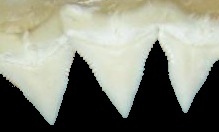Bull Shark killed British Honeymooner in Seychelles
British honeymooner Ian Redmond was attacked by a bull shark, DNA analysis has revealed
 Published by Seychelles Nation,
26. October 2011
Published by Seychelles Nation,
26. October 2011
Mr Redmond lost his life while snorkeling at Anse Lazio on August 16 this year, 10 days after his wedding to Gemma Houghton at St Michael’s Church in Dalton, Lancashire. They were in Seychelles on their honeymoon.
It was the second fatal shark attack incident in just over two weeks at the same place. The first happened on August 1 and Frenchman Nichol François Xavier Virolle was the victim.
According to a communiqué from the Ministry of Home Affairs, Environment, Transport and Energy (MHAETE), the shark tooth fragment found in Mr Redmond’s leg and sent to a genetics expert in Florida has been identified by DNA analysis as belonging to the species Carcharhinus leucas (bull shark).
Professor Mahmood Shivji — the director of the Save Our Seas Shark Center and Guy Harvey Research Institute at Nova Southeastern University in Florida, USA — enlisted the help of his colleague, Dr Larry Grillo, a dental surgeon in Miami, to retrieve a small amount of dentin from the tooth fragment which yielded sufficient DNA for analysis.
According to Prof. Shivji, “finding the section of the tooth that had exposed dentin was essential and Dr Grillo’s expertise was key in this”.
Once the dentin was identified and a sample removed, the DNA analysis could move forward.
Prof. Shivji’s research group first digested the dentin material to release the tooth’s DNA, and then obtained the DNA sequence of a mitochondrial gene section known as COI barcode from which they were able to unambiguously determine the identity of the shark.
According to Chris Clarke, who organised the effort to get the shark tooth identified, the bull shark was one of the three original shark suspects along with great white and tiger sharks.
“It’s really helpful to know which shark species was involved,” said Clarke . “We can now focus our attention on studying the biology and movements of the species in Seychelles waters to help local managers prevent future incidences, as well as ensure the safety of sharks as critical components of a healthy marine ecosystem.”
“For the government of Seychelles this is a major breakthrough because it pinpoints to the identity of the shark species involved in the attacks. With this knowledge the government can now design and implement a targeted research programme to better understand the population dynamics, behaviour and distribution of bull and tiger sharks within our coastal waters,” says the MHAETE communiqué.
“Local marine scientists and environment makers from Seychelles met recently to finalise details of a research project that will be implemented over the next four years in partnership with Chris Clarke and the Kwazulu Natal Shark Board. The research programme will build on existing research projects currently being undertaken by the Seychelles Fisheries Authority and non-governmental organisations,” adds the communiqué.
Minister Joel Morgan has expressed his satisfaction and gratitude to Dr Clarke and Prof. Shivji and his team for providing such groundbreaking and world class services free of charge to the government of Seychelles on such a critical issue.
Source: Seychelles NATION
